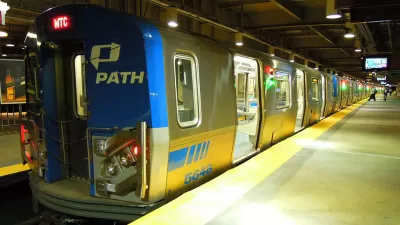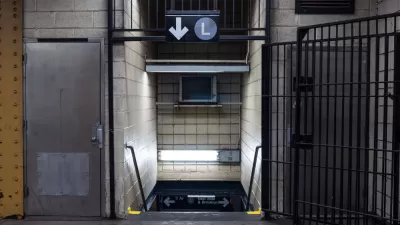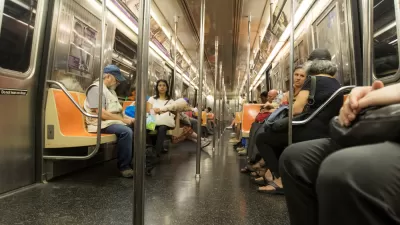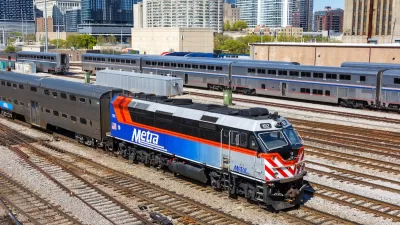In cities like New York where multiple transit operators serve the same travelers, nothing compels those operators to work together. This isolation can result in embarrassing inefficiencies.

For systems that ostensibly serve the public, many transit agencies can't—or won't—work together when the situation encourages it. When PATH closed a section of its network this month, it chose "to shuttle its passengers rather than take advantage of existing New York City Transit Subway services, giving them vouchers to use on the buses instead of working with the MTA to let riders take advantage of the trains it is running."
Yonah Freemark suspects that the systems see themselves in competition with each other. "What's ironic about this arrangement, of course, is that both PATH and the New York City Subway are run by public agencies (supposedly) serving in the public interest and receiving public subsidies to operate and construct projects."
Freemark estimates the total cost of shuttling PATH passengers at $720,000 to $930,000. "It would be cheaper for both transit systems overall for the MTA to simply absorb the transferring PATH riders during the weekend shutdowns."
The real problem may be political. "A better grasp on what regional goals are for transit networks in general, and a commensurate focus by elected officials on telling agencies what to do, rather than letting agencies operate in isolated fiefdoms, would aid American transit riders."
FULL STORY: The boundaries that divide our transit systems

Maui's Vacation Rental Debate Turns Ugly
Verbal attacks, misinformation campaigns and fistfights plague a high-stakes debate to convert thousands of vacation rentals into long-term housing.

Planetizen Federal Action Tracker
A weekly monitor of how Trump’s orders and actions are impacting planners and planning in America.

In Urban Planning, AI Prompting Could be the New Design Thinking
Creativity has long been key to great urban design. What if we see AI as our new creative partner?

Massachusetts Budget Helps Close MBTA Budget Gap
The budget signed by Gov. Maura Healey includes $470 million in MBTA funding for the next fiscal year.

Milwaukee Launches Vision Zero Plan
Seven years after the city signed its Complete Streets Policy, the city is doubling down on its efforts to eliminate traffic deaths.

Portland Raises Parking Fees to Pay for Street Maintenance
The city is struggling to bridge a massive budget gap at the Bureau of Transportation, which largely depleted its reserves during the Civd-19 pandemic.
Urban Design for Planners 1: Software Tools
This six-course series explores essential urban design concepts using open source software and equips planners with the tools they need to participate fully in the urban design process.
Planning for Universal Design
Learn the tools for implementing Universal Design in planning regulations.
Gallatin County Department of Planning & Community Development
Heyer Gruel & Associates PA
JM Goldson LLC
City of Camden Redevelopment Agency
City of Astoria
Transportation Research & Education Center (TREC) at Portland State University
Jefferson Parish Government
Camden Redevelopment Agency
City of Claremont





























